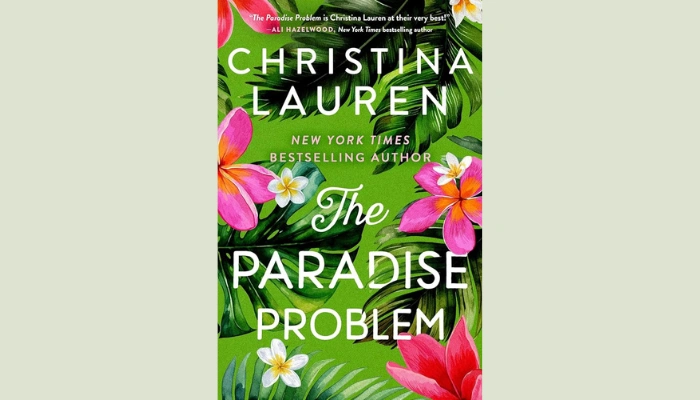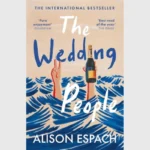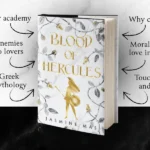Making choices sounds simple, but in reality, our decisions are often more complicated than they seem. Whether it’s picking a book to read, deciding on a career move, or even choosing a meal from a menu, too many options can lead to stress and indecision. This psychological phenomenon is known as The Paradise Problem. In this post, we’ll explore what it is, why it matters, and how it influences our daily decision-making.

Content
Understanding The Paradise Problem
At its core, The Paradise Problem arises when we are faced with a large number of appealing choices. The abundance of options may seem ideal, but it can actually make decision-making harder. This is closely related to the paradox of choice, where more options lead to greater anxiety, dissatisfaction, and indecision.
Imagine walking into a bookstore with hundreds of bestsellers. Each book looks appealing, but you can only read one. The decision-making paradox kicks in, and you may end up overwhelmed, unsure which book to choose, or even leave without buying any.
This is more than just a quirky mental challenge—it affects real-life outcomes, from consumer behavior to career planning. It’s also why decision fatigue has become a common term in psychology and productivity circles.
Real-Life Case Study: Choosing a Career Path
Consider Sarah, a recent college graduate. She had multiple job offers in marketing, graphic design, and sales, each promising unique opportunities. Initially, Sarah felt thrilled by the choice overload problem, believing that more options would guarantee the “perfect” job.
However, as she evaluated each offer, the pressure to make the “right” choice led to anxiety. She spent weeks analyzing pros and cons, comparing salary, work-life balance, and company culture. Eventually, Sarah realized that overthinking was paralyzing her decision-making. She applied strategies from behavioral psychology, focusing on her long-term goals and values rather than every minor detail. In the end, she chose the marketing role that aligned with her passions.
Sarah’s experience illustrates how The Paradise Problem influences decision-making in practical scenarios. By understanding it, we can make more informed and satisfying choices.
Examples of The Paradise Problem in Daily Life
- Shopping Online: Too many product options, like choosing the perfect smartphone or laptop, often result in buyer’s remorse or prolonged indecision.
- Entertainment Choices: Streaming services provide hundreds of movies and series, making it difficult to settle on what to watch.
- Social Decisions: Even something as simple as selecting a restaurant with friends can feel overwhelming when options abound.
In each case, the psychology of decision-making shows that more options do not always mean better choices. Instead, they can increase stress and reduce satisfaction.
Why The Paradise Problem Makes Decisions Harder
The difficulty comes from several psychological mechanisms:
- Fear of Missing Out (FOMO): When presented with many appealing alternatives, we worry about missing the “best” one.
- Analysis Paralysis: Overanalyzing choices can lead to delays or complete avoidance of decision-making.
- Regret Aversion: The anticipation of potential regret can prevent decisive action.
Understanding these factors is crucial for recognizing when decision fatigue is influencing our choices, from small daily tasks to major life decisions.
Strategies to Overcome The Paradise Problem
Here are practical ways to manage choice overload problem effectively:
- Limit Options: Narrow down your choices to a manageable number. For instance, pick the top 3 books or 2 restaurants instead of dozens.
- Set Priorities: Focus on what matters most to you, such as long-term goals or core values.
- Time-Bound Decisions: Give yourself a deadline to decide, reducing overthinking.
- Embrace Imperfection: Accept that no choice is perfect; making a decision and moving forward is often better than endless deliberation.
Applying these strategies in daily life can help reduce stress and improve satisfaction with your decisions.
Writing Style and Tone Observations
When writing about The Paradise Problem, adopting a conversational and relatable style helps readers connect with the topic. Using personal experiences or real-life examples, like Sarah’s career decision, makes abstract concepts tangible. Short and medium-length sentences, along with lists and bullet points, improve readability. Directly addressing readers with phrases like “Consider this” or “Imagine walking into” also keeps the audience engaged.
Conclusion: Making Choices Simpler
The Paradise Problem reminds us that more options are not always better. Understanding how choice overload, decision fatigue, and regret aversion influence our behavior empowers us to make smarter, more satisfying decisions.
By applying strategies like limiting options, prioritizing values, and setting deadlines, anyone can navigate complex decisions more effectively. Whether you’re choosing a career path, a book, or your next meal, awareness of the paradox of choice can transform decision-making from stressful to empowering.
Check out our in-depth review of The Wedding People for more insights into romance and complex relationships.
FAQs
Is Paradise Problem spicy?
The Paradise Problem has a light romance tone with some steamy moments, fitting the fake marriage and opposites attract trope.
What is the book Paradise Problem about?
The Paradise Problem explores love, humor, and personal growth through a fake marriage romance story.
Is The Paradise Problem part of a series?
The Paradise Problem is a standalone novel, not part of a series.
What is the loophole in The Paradise Problem?
The “loophole” refers to plot twists in The Paradise Problem that challenge characters’ plans and decisions.

As an aspiring poet, Ryan’s wordsmith skills shine through. He reviews and discusses poetry collections, celebrating the power of verse in our lives.












